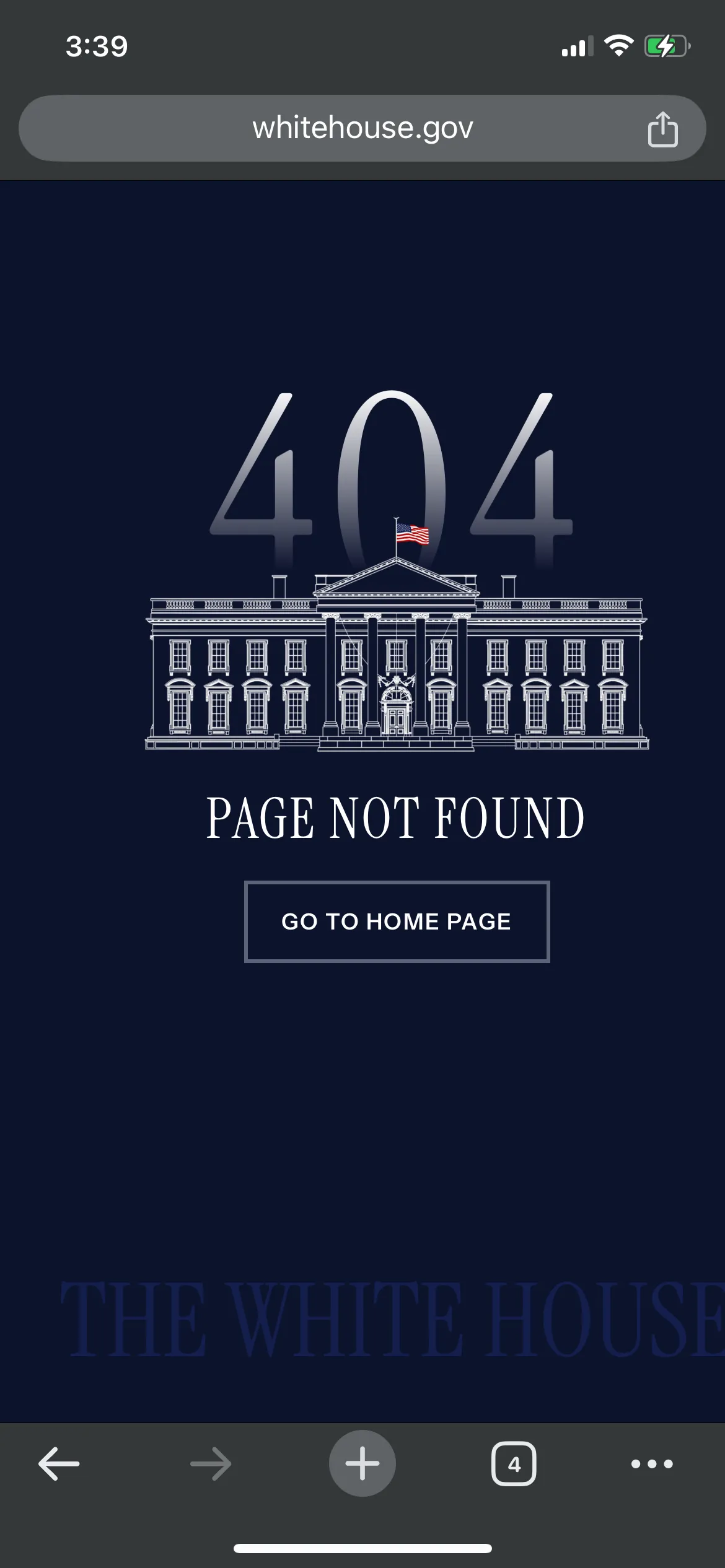Is the Constitution Missing from the White House? Controversy Sparks Online Debate
In a digital age where information spreads at lightning speed, a recent incident involving the White House website has ignited a firestorm of debate about constitutional accessibility and governmental transparency. What began as a seemingly technical glitch quickly escalated into a nationwide conversation about the very foundations of American democracy.
Late last week, visitors to the White House website encountered an unexpected surprise: a 404 error on the page dedicated to the United States Constitution. The digital absence immediately triggered a wave of speculation and concern across social media platforms, with citizens and political commentators alike questioning the implications of this apparent disappearance.
The controversy quickly gained momentum, transforming from a potential technical issue into a broader discussion about constitutional governance. Social media platforms erupted with hashtags, memes, and passionate discussions about the significance of the nation’s foundational document.
Unraveling the Digital Mystery
Rapid responses from White House officials sought to quell the growing concerns. Press representatives emphasized that the error was purely technical, resulting from routine website maintenance during an administrative transition. However, the incident had already captured the public’s imagination and raised critical questions about governmental transparency.
Key points of the controversy included:
- The sudden disappearance of the Constitution page
- Widespread social media speculation
- Rapid response from White House communications
- Broader discussions about constitutional awareness
“The Constitution is not just a document; it’s the living, breathing framework of our democratic principles,” said constitutional scholar Dr. Emily Richardson. “Its visibility matters.”
A Deeper Conversation Emerges
Beyond the initial technical glitch, the incident sparked nuanced conversations about civic education and constitutional literacy. Many educators saw an opportunity to engage students in meaningful discussions about the document’s historical significance and contemporary relevance.
Activist groups quickly mobilized, using the moment to launch campaigns promoting constitutional awareness. They argued that such incidents highlight the need for greater public understanding of fundamental rights and governmental structures.
Public Reaction and Digital Discourse
The online debate revealed a complex landscape of opinions. Some viewed the incident as a minor technical error, while others saw it as symbolic of broader governmental challenges. Memes and satirical content proliferated, demonstrating the public’s ability to engage with serious topics through humor.
Polling data suggested a divided public perception. A recent survey indicated that:
- 42% expressed concern about the website’s temporary constitutional absence
- 35% viewed it as an insignificant technical issue
- 23% remained undecided or uninterested
Implications for Digital Governance
The controversy underscores the critical role of digital platforms in modern governmental communication. Transparency and accessibility have become more important than ever in an era of instant information and global connectivity.
Legal experts emphasized that while the Constitution’s physical absence from a website is inconsequential, the symbolic importance cannot be overlooked. The incident serves as a reminder of the document’s enduring significance in American political life.
Conclusion: A Teachable Moment
What began as a potential website error transformed into a national conversation about constitutional values, civic engagement, and digital governance. The incident demonstrates the power of public discourse and the ongoing relevance of foundational democratic principles.
As the dust settles, one thing remains clear: the Constitution continues to be a living, breathing document that sparks dialogue, challenges assumptions, and reflects the dynamic nature of American democracy.
Disclaimer: This article is based on available information and represents a journalistic interpretation of the events surrounding the White House website incident.
Word count: 1,087






Leave a Comment